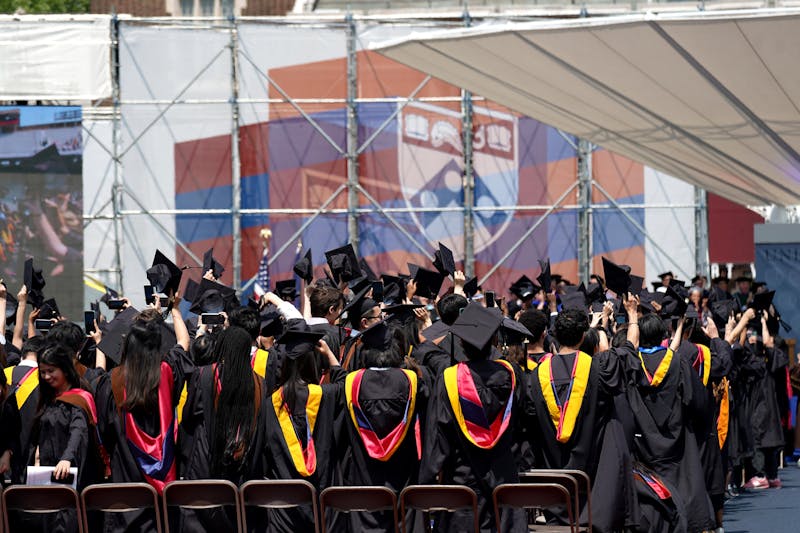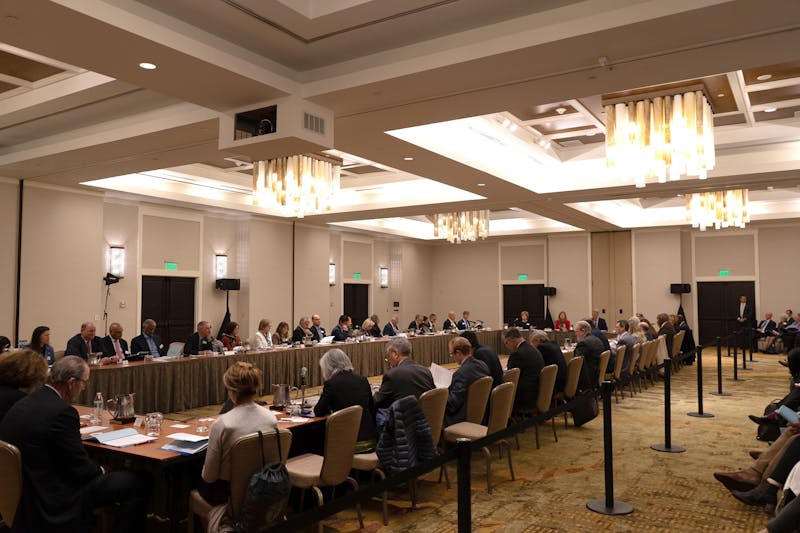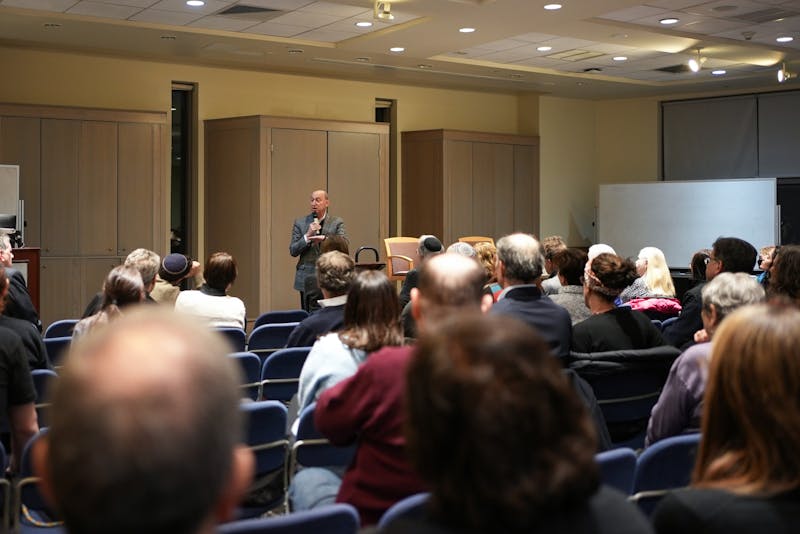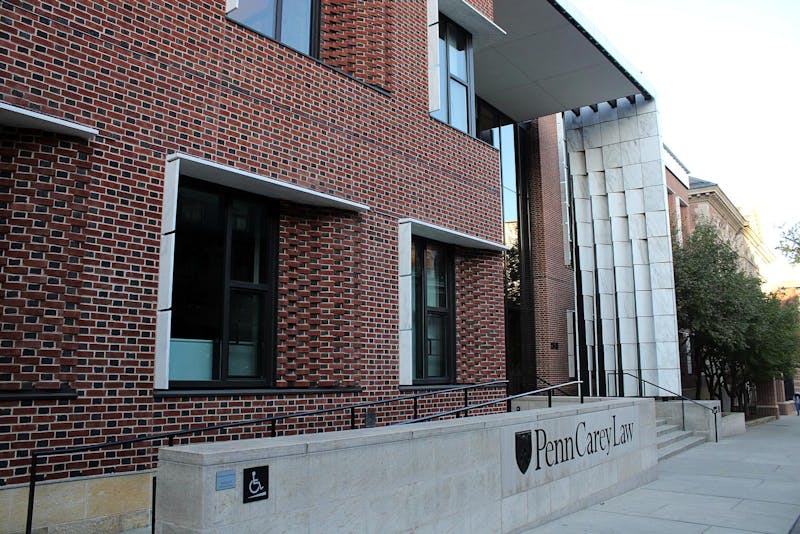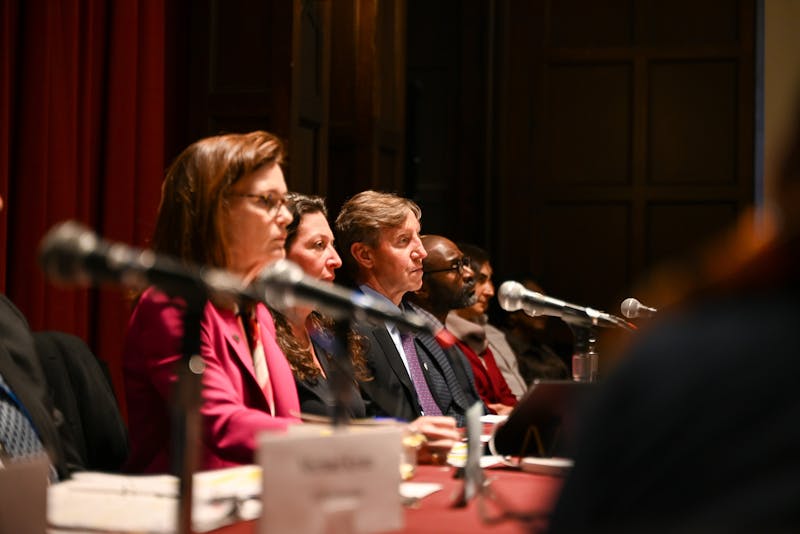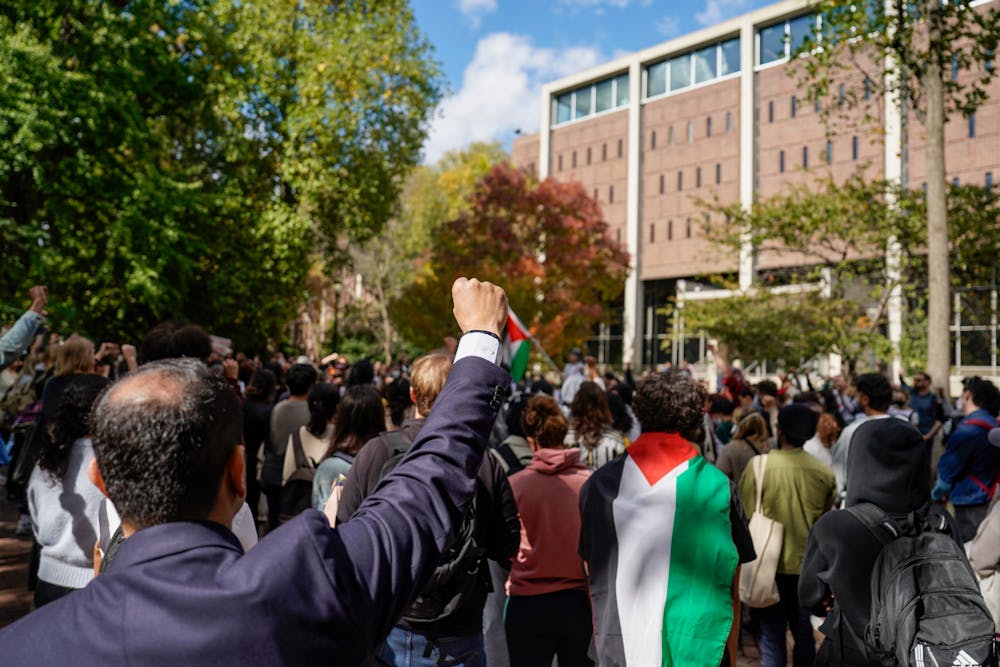
Community members rally in support of Palestine in front of Van Pelt-Dietrich Library Center on Oct. 18.
Credit: Anna VazhaeparambilOver the past few weeks at Penn, the tension in the air has become increasingly palpable. Much of the community has continued on with their lives, business as usual, while many others have been overwhelmed by grief and anger at the lives lost in Gaza and Israel. These strong sentiments have seemingly come from all sides and parties who have connections to the conflict, whether they are ideological, familial, religious, cultural, historical, or a combination of these factors. The story that has received the most coverage and attention at Penn, however, centers around people whose relationships to the campus lie primarily in their wealth: alumni donors.
In the wake of Hamas’s attack and Israel’s invasion of Gaza, many donors began retracting their financial support for the University in an unprecedented manner. They justified their actions by criticizing President Liz Magill and the current administration for failing to address antisemitism, first for their response to the Palestine Writes Literature Festival, and later for their messaging on Hamas’s attack. Although this group of donors states that their reasons for disinvesting are related to antisemitism, their decision to flex their economic power has had the chilling effect of impairing discourse around the Israeli-Palestinian conflict on Penn’s campus.
The anti-occupation movement at Penn, and in Philadelphia as a whole, has grown more vocal and received greater coverage over the past few weeks. This is what donors such as Marc Rowan refer to when they talk of how the University is “heading in the wrong direction.” Many faculty members and students have expressed support for the movement through statements, events, and protests; this has proved to be just too much for the donors to bear. Citing a failure to combat antisemitism, many donors have pulled their funding from the University, knowing that this would generate more coverage than any other technique.
Of course, there are a host of misconceptions that stem from calling pro-Palestinian activism antisemitic; among other things, stating this effectively ignores the fact that there are many active Jewish organizations, such as Jewish Voice for Peace, which call for an end to the occupation, and many Jews like myself who lend their voices to this movement. Antisemitism is a very real threat on Penn’s campus right now, causing anxiety and fear within Penn’s Jewish community; however, painting pro-Palestinian rhetoric as inherently antisemitic is extraordinarily harmful and divisive. The donors who have pulled their funding use the rhetoric of stopping antisemitism as a means to pull the University in a reactionary direction rather than one of activism and change. They are truly worried that the institution that receives the fruits of their wealth, the institution that uses that money to further the gentrification of West Philadelphia and hires lobbyists who work in the fossil fuel industry, has a thriving activist community. They are scared that this kind of resistance from activist organizations and groups has been taking shape in the belly of the beast, in the bastion of their opulence that is the University of Pennsylvania.
This is why certain donors painted the Palestine Writes Literature Festival as a hateful event in its entirety when the overarching goal of the festival was to celebrate Palestinian culture and to support the claim that Palestinians’ roots in the land go back centuries. The donors viewed the event as an act of resistance against Israel, a state whose policies of cultural and physical erasure are deeply woven into its history. They recognize that the Palestinian activist movement at Penn has been challenging a singular historical narrative of the Israeli-Palestinian conflict.
While we don’t yet know the extent to which donors’ disinvestments will affect Penn in the long term, they would not be pulling their funding if they didn’t feel threatened. By calling for the “forceful condemnation” of events like the Palestine Writes Literature Festival, they lean into censorship, what author Ta-Nehisi Coates calls “the weapon of a weak and a decaying order.” They know that the pro-Palestine movement is growing stronger, and the only way that they can combat this is to fall back on their wealth and demonstrate the extent to which Penn relies on it to function. The donors’ withdrawals of funding are a clear indicator that the efforts of pro-Palestinian activists and student groups are making a difference.
IZZY FEINFELD is a College first year studying anthropology from Westwood, Massachusetts. His email is izzyf16@sas.upenn.edu.
The Daily Pennsylvanian is an independent, student-run newspaper. Please consider making a donation to support the coverage that shapes the University. Your generosity ensures a future of strong journalism at Penn.
Donate







